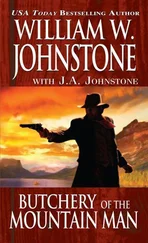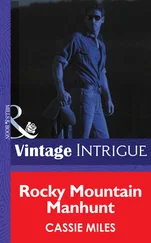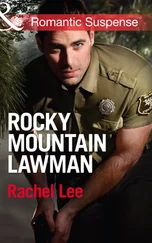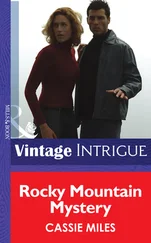Feeling an overwhelming sense of foreboding, Jenny put the book aside and walked to the window, looking down onto the street below. When there was a knock at the door she gasped. She knew something was wrong. Nate wouldn’t knock.
Turning away from the window, she took a sharp breath, and with trembling hands, crossed over to open the door. The man standing in the hallway was wearing the badge of a deputy city marshal.
“Mrs. McCoy?”
“Is he dead?” Jenny asked in a quiet and resigned voice.
If the deputy was shocked by her question, he didn’t show it. “Yes, ma’am, I’m afraid he is.”
“What happened?”
“I’m told he was caught with an ace up his sleeve. There was an altercation, your husband went for a gun, and he was shot.”
“That isn’t possible.”
“Mrs. McCoy, are you saying your husband didn’t cheat?”
“No, he cheated all right. But it isn’t possible that he went for a gun. He never carried one.”
“To be truthful with you, Mrs. McCoy, it doesn’t matter whether he had a gun or not. There was a bitter argument precipitated by your husband, and the man who shot him believed McCoy was going for a gun. The belief that his life was threatened is all it takes to justify shooting your husband.”
“Where is he now?”
“The undertaker has him. Will you be paying for his final expenses or will the city pay?”
“You mean the city would pay?”
“A plain pine box and a hole in the ground. I’m afraid there is nothing comforting about a city-financed burying.”
“I’ll go see the undertaker,” Jenny said. “Perhaps we can come to an accommodation of sorts.”
Learning that the undertaker’s business was next door to the hardware store, Jenny left the hotel and walked down to see him. Surprised to see a rather substantial knot of people standing around in front of the undertaker’s building, she wondered why they were there.
As soon as she arrived, she saw what was holding their attention. There, in an open casket, she saw her husband. His arms were folded across his chest, and he was holding a hand of cards. A hand-lettered sign read A CHEATING GAMBLER’S FATE.
“I’ll bet all five of them cards is aces,” a man in the crowd said, causing several others to laugh.
Jenny went into the establishment where she was met by a tall, gaunt man in a black suit, white shirt, and black string tie.
“Yes, ma’am. Is there something I can do for you?”
“There certainly is. You can remove my husband from that horrid display in the window,” Jenny answered pointedly.
“Your husband? You mean the gambler?”
“Yes, Nate McCoy. He is—was—my husband. And what you are doing, displaying him like that, is disgraceful. I thought morticians were supposed to show respect for the dead and their families.”
“I-I beg your pardon, madam. I wasn’t aware the deceased was married, and I was especially unaware he had any family in Colorado Springs. Of course, I will remove the remains at once.”
“Why would you do such a thing, anyway?”
“I thought the city would be responsible for burying him. They pay so little I don’t even break even on the cost of the services I provide. Displaying his body in such a way draws people to satisfy their curiosity, morbid though it may be. And that is good publicity for my business.”
“I will pay for his funeral,” Jenny promised.
“Yes, ma’am. Will you want a church service and a minister in attendance during the committal?”
“I will.”
“What is your denomination?” the undertaker asked.
“I am not particular.”
“And how soon do you want the funeral?”
“As quickly as it can be arranged.” Jenny opened her reticule and withdrew the roll of money Nate had won in the last city. It was to be his seed money for his next gambling operation. “How much will this cost?”
The undertaker looked at the wad of money and licked his lips. “I think, uh, one hundred and fifty dollars should cover ever ything.”
“Yes, I should hope so,” Jenny said, counting out the money.
“Yes, ma’am. Leave everything to me. I’ll take care of all the details.”
“How soon can we do this?”
“Oh, I’m quite sure we can arrange it for you as early as tomorrow.”
“Today would be better, but if it is to be tomorrow, then that will have to do.”
“Where are you staying, madam?”
“I am staying at the Dunn Hotel.”
“I will get word to you when the arrangements have been made.”
“Thank you.”
The only people present for the church service the next morning were Jenny, the preacher, and the mortician. The preacher knew nothing about Nate McCoy, so instead of preaching a funeral service, he merely reread the sermon he had given the previous Sunday.
An additional person was present for the graveside committal. The gravedigger stood off at a respectful distance, leaning on his spade and smoking a pipe as he waited for the opportunity to close the grave so he could draw his fee, then go have a drink.
The committal service was short, consisting only of a single prayer, during which the preacher called him Ned, instead of Nate. The moment the preacher said amen, the gravedigger sauntered over and he and the mortician lowered the pine box into the ground.
As she walked away from the open grave, Jenny could hear the thump, thump as dirt landed on the pine box.
Leaving the cemetery, Jenny went directly to the railroad depot. “What time is the next train?” she asked the ticket agent.
“The next train to where, madam?” the ticket agent replied with a long-suffering sigh.
“I don’t care where it is going as long as it is the next train.”
“The southbound is due in about half an hour.”
“I want a ticket on that train.”
“Where to, madam?”
“Where is it going?”
“Pueblo, Salt Creek, Walsenburg . . .”
“Pueblo,” Jenny said.
“Yes, ma’am.” The ticket agent made out the ticket, stamped it with a rubber stamp, then handed it to her.
“That will be eight dollars.”
“Thank you.” Jenny handed him the money.
When the train rolled into the depot twenty-six minutes later, Jenny boarded it and found an empty seat, purposely choosing not to sit by the window. She had no wish for a last look at the town where all her fears had culminated. Though she would never admit it, even to herself, it was also where she’d gained freedom from a marriage that never should have been.
CHAPTER FOUR
Pueblo, Colorado—April 1893
The thirty-three children of Jenny’s fifth grade class were gathered for a photo in front of the steps leading up to the school. Students in the first row sat on the ground with their hands folded across their laps. Those in the second row sat on a long, low bench, and the third and fourth rows were standing on ascending steps.
“Now, if the teacher would just sit beside her class.” The photographer had a long mustache that curled up at each end. His camera, a big box affair, was sitting on a tripod in front of the class.
Jenny sat on a chair alongside the class, her hands folded across her lap just as she had instructed the children.
“Now, nobody move until I say so.” The photographer put his hand on the shutter latch. “See the honey up in the tree, I wish you would bring some to me,” he said in a monotone voice. “There. Now you can move.”
“I can move,” one of the boys on the front row exclaimed, and he pulled the hair of the girl beside him.
“Ouch!”
“Danny,” Jenny scolded. “All right, children, school is dismissed. Don’t forget your homework.”
Читать дальше












